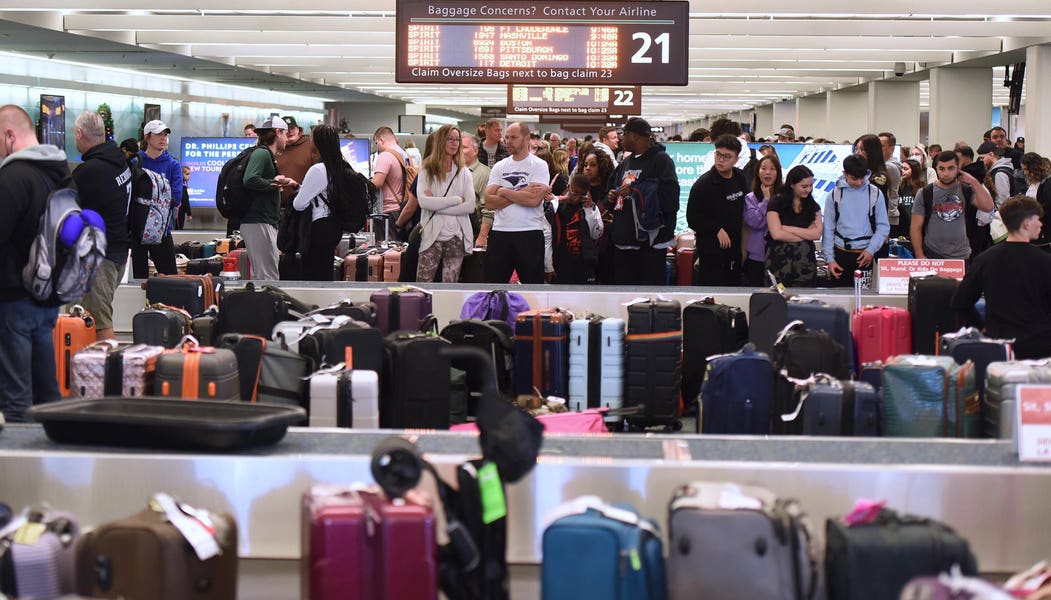Arriving at their destination without their luggage can be a major source of distress for airline passengers. When luggage goes missing, it can disrupt vacation plans.
Research conducted by SITA’s aviation technology specialists revealed a 74.7% increase in mishandled baggage incidents the following year. This surge in incidents marked a reversal of the previous positive trend in luggage management, despite only 7.6 mishandled bags per 1,000 travelers.
Fortunately, the current year has seen an improvement in baggage handling operations, with airlines leveraging AI technology to assist in locating lost luggage, making the recovery process more efficient.
Alleviating Air Travel Stress
SITA conducts comprehensive studies each year on the challenges faced by air travelers and explores how technology can offer solutions. According to their latest findings, 22% of travelers encounter issues during baggage claim, making it the second most stressful aspect of air travel after security (31%).
Sergio Colella, SITA’s President of Europe, highlighted that travelers commonly experience stress related to luggage, flight delays, and disruptions. He noted that some airlines significantly reduced staff levels post-COVID, leading to challenges such as luggage pile-ups.
Despite these challenges, the number of mishandled bags has returned to 2019 levels, with 5.6 bags per 1,000 passengers. With IATA forecasting a record-breaking 4.7 billion air passengers by 2024, the aviation industry is prioritizing efficient baggage management to meet this surge in demand.
Colella emphasized the potential of technology to address these issues but stressed the importance of ongoing monitoring.
Enhancing Baggage Management with AI
Airlines are utilizing AI to streamline the process of re-routing misplaced luggage back to its owners.
Colella explained, “We are developing AI-driven solutions to enhance the management of mishandled baggage, providing users with greater visibility and control. Collaborations with industry players like Lufthansa are focused on deploying AI solutions to swiftly rebook passengers’ luggage for their next journey and enable real-time tracking.”
The objective is for AI algorithms to swiftly identify optimal solutions when a passenger’s luggage misses a flight, automatically initiating re-routing and rebooking processes. While full automation is not yet in place, Colella expressed confidence in the potential for further advancements in this area.
Future Trends in Intermodal Travel and Baggage Handling
The shift towards intercity travel is driving the need for more sophisticated baggage handling systems. SITA anticipates a growing demand for integrated reservations across air, rail, and sea travel. A significant portion of passengers (33%) on intercity flights prefer to check their luggage at the airport rather than managing it throughout the journey. AI-enabled baggage systems are poised to meet this evolving demand for seamless intermodal travel experiences.
Colella emphasized the industry’s commitment to providing end-to-end customer satisfaction across various travel modes.
Upholding Baggage Handling Standards in Collaboration with Amazon
Airlines have a compelling financial motive to adopt AI solutions for baggage management and enhance operational efficiency. Colella highlighted, “IATA estimates the annual cost of mishandled baggage in our industry at \(2 billion." This accounts for nearly 10% of the projected \)25.7 billion net profits for the airline sector in the upcoming year. Therefore, even a modest 20% improvement in this area could yield substantial returns on investment.
Colella underscored the need for carriers to meet customer expectations set by industry giants like Amazon, emphasizing the importance of delivering a seamless, customer-centric experience akin to leading e-commerce platforms.






